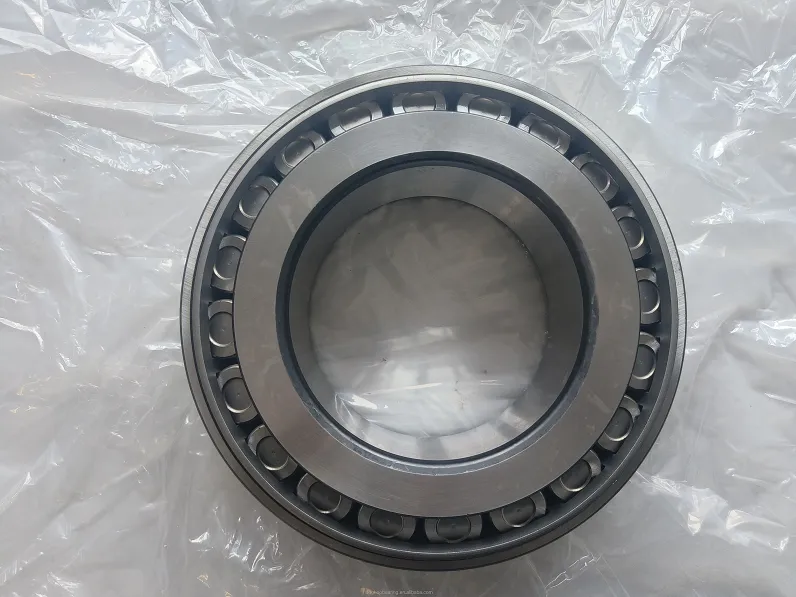Dec . 04, 2024 13:41 Back to list
Custom Lubrication Solutions for Electric Motor Bearings to Enhance Performance and Longevity
Custom Greasing for Electric Motor Bearings
Electric motors play a vital role in a myriad of applications, serving as indispensable components in industries ranging from manufacturing to household appliances. Within these motors, bearings are crucial for their efficient operation, supporting the rotor and ensuring smooth movement with minimal friction. One essential aspect of maintaining the longevity and performance of electric motor bearings is custom greasing. This article explores the significance of custom greasing, its benefits, and best practices for effective implementation.
Importance of Greasing Electric Motor Bearings
Bearings require adequate lubrication to reduce friction, dissipate heat, and protect against wear and corrosion. In electric motors, the choice of grease, its application methodology, and the frequency of greasing are critical factors that can influence the lifespan and efficiency of the bearings. Standard greasing practices may not always be sufficient, especially given the variety of operating conditions and environmental factors that different motors endure. Custom greasing considers these variables, applying tailored solutions to meet specific requirements.
Benefits of Custom Greasing
1. Enhanced Performance By utilizing greases tailored for specific temperature ranges, speeds, and loads, electric motor bearings can perform optimally. Custom greasing ensures that the lubricant used is capable of withstanding the unique conditions each motor faces, whether it's high-speed operation or exposure to extreme temperatures.
2. Extended Lifespan Custom greasing helps in minimizing wear and tear on bearings. The right lubricant not only reduces friction but also provides a protective barrier against contaminants such as dust, moisture, and chemicals. This proactive approach can significantly extend the service life of bearings, leading to reduced maintenance costs and downtime.
3. Improved Reliability Bearings that are regularly and correctly greased are less prone to failure. Custom greasing accounts for the specifics of each motor's application, leading to better reliability and consistency in performance. Industries that rely on electric motors, such as manufacturing and transportation, cannot afford unexpected failures, making reliability paramount.
4. Cost Efficiency While initial costs may be higher for custom lubrication solutions, the long-term savings can be substantial. Fewer replacements, reduced downtime, and lower maintenance interventions all contribute to cost-effectiveness. Additionally, optimized performance can lead to improved energy efficiency, translating to savings on operational costs.
custom greasing electric motor bearings

Best Practices for Custom Greasing
To implement an effective custom greasing strategy, several best practices should be followed
1. Assessment of Operating Conditions Analyze the specific operating conditions of the motor, including load, speed, temperature, and environmental factors. This assessment will help determine the type of grease that will work best.
2. Selecting the Right Grease Partner with lubrication experts to choose the appropriate grease. Factors to consider include viscosity, base oil type, thickening agents, and additives that offer anti-wear, anti-oxidation, and corrosion resistance properties.
3. Determining Greasing Intervals Establish a greasing schedule based on the manufacturer's recommendations and the unique operational demands of the electric motor. Frequent monitoring of bearing conditions can also inform adjustments to this schedule.
4. Application Techniques Use proper techniques for applying grease to ensure that it penetrates adequately and distributes evenly. Over-greasing should be avoided, as it can lead to excess pressure and damage, while under-greasing can result in insufficient lubrication.
5. Training and Procedures Ensure maintenance personnel are well-trained in custom greasing procedures. Documentation of greasing practices and intervals can also aid in maintaining consistent lubrication practices.
Conclusion
Custom greasing for electric motor bearings is a critical factor in sustaining performance and extending service life. By understanding the specific needs of each motor and applying tailored lubrication solutions, industries can enhance productivity and reliability while reducing costs. Given the crucial role that electric motors play across various sectors, investing in custom greasing solutions is a strategic approach that pays dividends in efficiency and operational integrity.
Latest news
-
25MM 2 BOLT UCFLX05-14 Flange bearing unit( oval)
NewsMar.07,2025
-
4 bolt UCF 200 series Pillow block bearings
NewsMar.07,2025
-
25MM 2 BOLT UCFLX05-14 Flange bearing unit( oval)
NewsMar.07,2025
-
UCF216-50 4-Bolt Flange Housing Square Bearing
NewsMar.07,2025
-
25MM 2 BOLT UCFLX05-14 Flange bearing unit( oval)
NewsMar.07,2025
-
spherical roller bearing material exporter
NewsMar.07,2025





